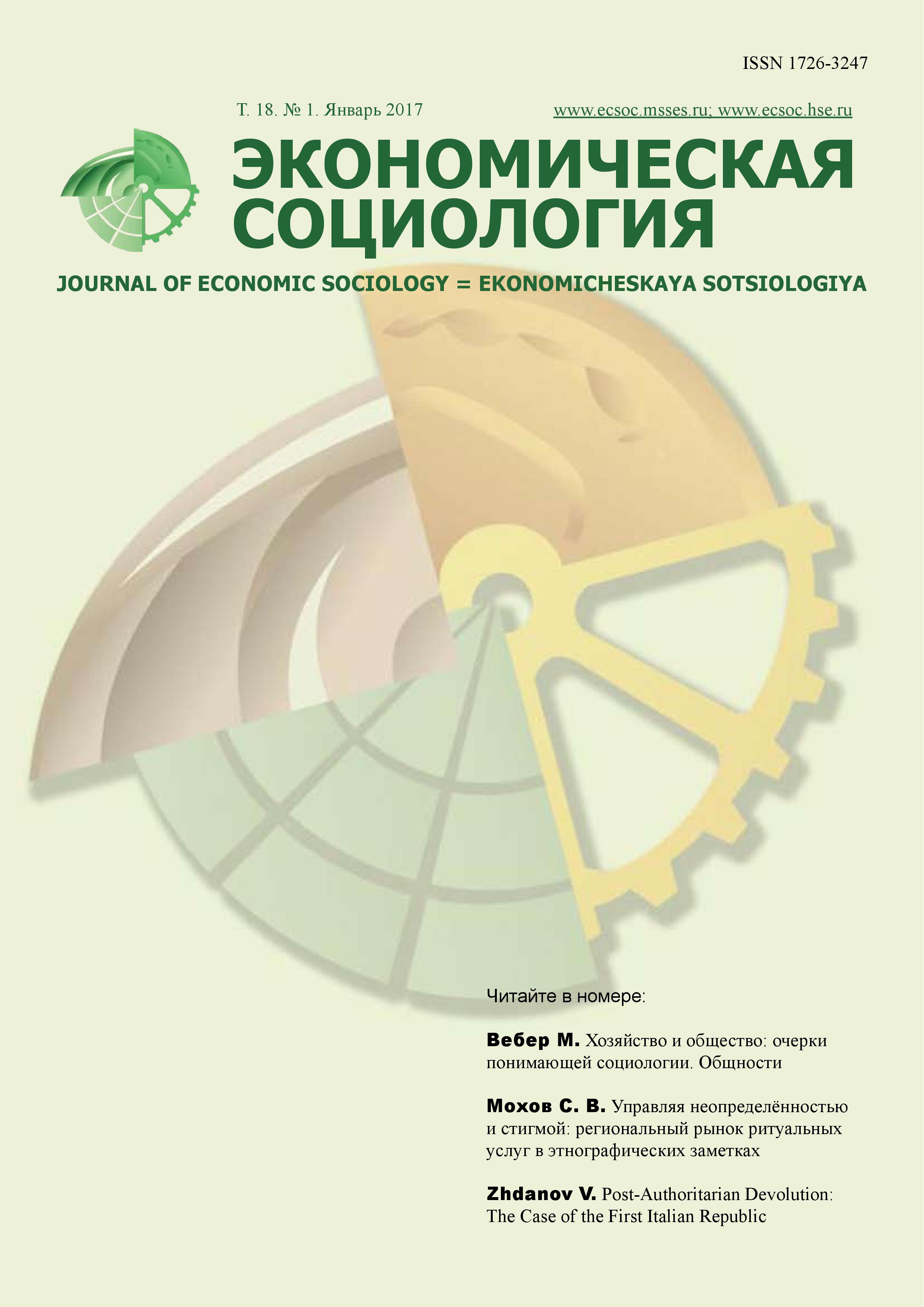Motives and Institutional Conditions of Overwork: Evidence from Moscow Office Workers
Abstract
The Western funeral industry has been delimiting professional stigma since the middle of the 20th century. The business is now open, public, and socially responsible. By contrast, the Russian funeral market is still plagued by myths and stereotypes which lead Russian funeral directors to avoid any form of publicity. As a result, the Russian funeral industry is highly stigmatized. Why does such a situation exist? Can we assume that stigma is perpetuated by the professional community?
The article is based on the author’s ethnographic notes that were collected as a result of undertaking field research in one of the central regions of Russia. In the first part, the paper describes common funeral market models and shows the basic differences present in the Russian model. The second part provides examples from the ethnographic work. In the third part, some notes about funeral market workers are made.
The article’s conclusion consists of several statements. First, that the Russian funeral market has a number of distinctive features: a weak and even spontaneous institutionalization; the prevalence of informal practices; and a dysfunctional infrastructure. In addition, the professional structure is quite closed to the entrance of new players and hierarchically organized according to the principles of a criminal society. This structure can be described in terms of David Stark’s concept of ambiguity, meaning that the funeral market is able to function effectively only if its ambiguous status is preserved. From this perspective, stigma is a tool of conservation of ambiguity.













